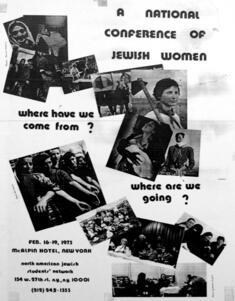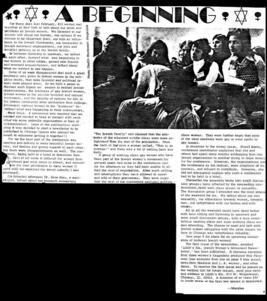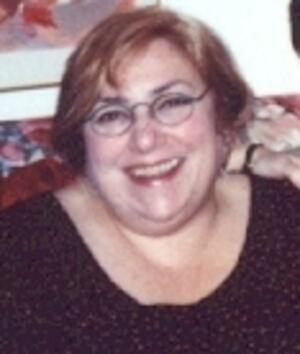Sheryl Baron Nestel
The topic of the article “A Beginning,” published in Chutzpah in 1973, is the exclusion of some Jewish women and some Jewish women’s issues from the first “Second Wave” Jewish feminist conference held in New York in February 1973, at the McAlpin Hotel. This is an important but rarely noted aspect of that historic event, for which I served as the conference coordinator. While the idea for the conference originated with the largely left-leaning and feminist staff in the New York offices of Network, the North American arm of the World Union of Jewish students, it quickly generated excitement among fledgling Jewish feminist groups in the city. Notably, members of Ezrat Nashim, the newly-formed religious feminist group, lent their considerable support to the project, along with some members of the radical secular group, Brooklyn Bridge, as well as members of the Jewish Liberation Project and others. The idea created considerable interest among Network’s member groups across the U.S. and Canada, and it was clear to us that we were riding the wave of an important cultural and political “moment.”
As the article notes, fundraising was hellishly difficult, and I think we made a decision to aim for a more mainstream audience, approaching the established Jewish women’s organizations for funds. With more mainstream support, we seemed to gravitate towards a more mainstream and consequently less inclusive agenda and venue. The program did focus heavily on the issue of the exclusion of women from Jewish religious life – an issue which was gaining enormous momentum at the time and, in retrospect, has had a major impact on contemporary Jewish ritual and liturgy. Unfortunately, we made the same mistake that many feminists were to make in the ensuing years: we sought respectability at the expense of inclusivity. So convinced were we that what we were doing was revolutionary that we were unable to see the ways in which the conference, despite being an important and empowering event, also reinforced the normative boundaries of American Jewish life which rendered poor Jews, gay and lesbian Jews, politically radical, and radically secular Jews – to name but a few – beyond the pale.
Sheryl Nestel grew up in Los Angeles and received her undergraduate education at UCLA, where she was the editor of Ha’Am, the first Jewish student newspaper funded by a public university. She was also a founder of the UCLA Women’s Liberation Front and an active member of the Jewish Radical Community. In 1973, she was hired by the North American Jewish Students’ Network to organize the first Second Wave Jewish feminist conference in North America. Between 1974 and 1988, Nestel lived in Israel, where she was active in the childbirth reform movement as well as in the Israeli peace movement. Returning with her family to North America in 1988, she completed a Ph.D. in Sociology at the Ontario Institute for Studies in Education of the University of Toronto, where she now teaches in the Department of Sociology and Equity Studies. Her research focuses on issues of race and reproduction, racism and healthcare, and Jewish identity.





